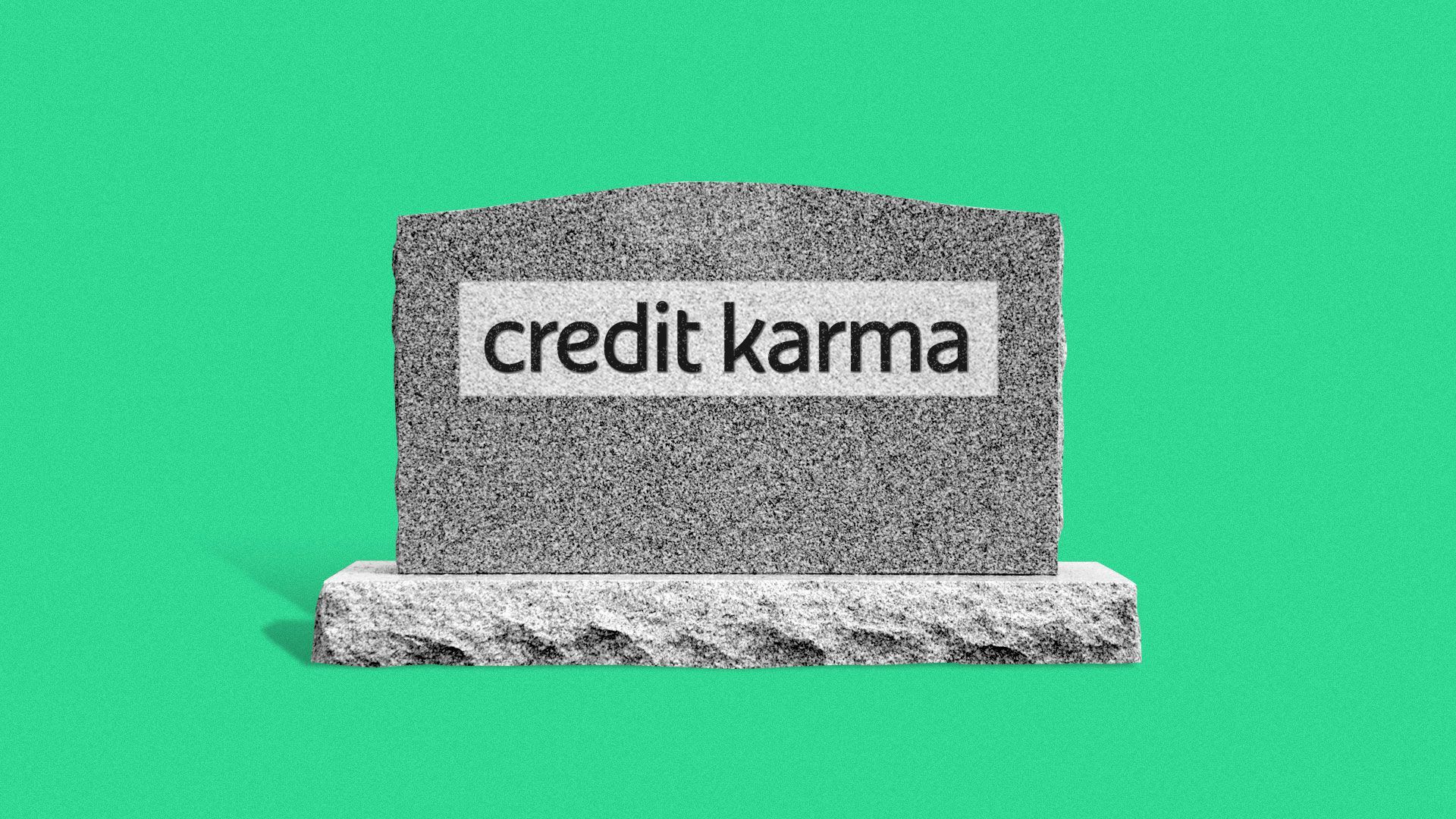Intuit acquisition spells doom for Credit Karma
Add Axios as your preferred source to
see more of our stories on Google.

Illustration: Eniola Odetunde/Axios
Karma says that if something bad happens to you now, you probably did something to deserve it. So what did Credit Karma do to deserve being bought by Intuit?
Driving the news: Credit Karma is the most successful of the apps built around giving people their credit score for free. It had about $1 billion in revenue in 2019, and served some 37 million monthly active users. Now it's being bought by Intuit for $7.1 billion.
What they're saying: "The complementary strengths of our combined companies will help us to invest in innovation, build faster and deliver products our consumers expect and deserve.” That's Kenneth Lin, the founder and CEO of Credit Karma, in the official press release.
Intuit is good at many things, including lobbying the government, making a lot of money, and being the target of hard-hitting investigative journalism.
But, investing in innovation and building faster are not among its skills.
- Intuit's two tentpole products — TurboTax and QuickBooks — deliver bloated, unpleasant experiences. They have also evolved glacially.
- Intuit's third main product, Mint, was much loved when it was acquired in 2009. Since then it has been all but abandoned.
- A fourth product, Turbo, was designed to compete directly with Credit Karma by providing a free credit score. The fact that Intuit is now spending $7 billion on Credit Karma tells you everything you need to know about how well Turbo did.
The big picture: When young fintech startups create products and services that surpass what's available from the old guard, they often get snapped up by giants. Clarity Money was bought by Goldman Sachs, Plaid was bought by Visa, Simple was bought by BBVA. Those acquisitions almost never result in the product getting better faster than it would have done independently.
For the record: Intuit offered to make the CEOs of both companies available to Axios. But when I said I'd be happy to talk to them, they refused to talk to me. I therefore never got the opportunity to ask them whether they intend to allow Credit Karma advertisers to target customers based on the contents of their tax returns.
